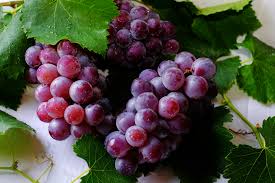
Texas Wine Gains Global Traction Through International Organization
For the booming and rapidly evolving Texas wine industry, membership in the International Organisation of Vine and Wine (OIV) carries unique opportunities and recognition.
The OIV is a prestigious intergovernmental body dedicated to advancing the science and global standards of *viticulture and winemaking. Today, its membership spans 51 nations, including some of the world’s most iconic wine-producing countries such as France, Spain, and Italy.
Beyond member states, there are also 15 international wine and spirits organizations that serve as “observers.” These organizations play a critical role in shaping the standards, production practices, and scientific approaches that guide the global grape and wine sector.
What makes Texas stand out is that it is currently the only U.S. state with observer status at OIV. This designation enables Texas to participate in OIV’s international activities, discussions, and research initiatives that strengthen and support the wine industry not just at home, but worldwide.
The Texas Department of Agriculture secured this historic observer status in 2022, marking a significant milestone for the state’s growers, winemakers, and researchers. Soon after, the department entrusted the Texas A&M College of Agriculture and Life Sciences – Department of Horticultural Sciences with leading the state’s scientific delegation. Under the leadership of *Amit Dhingra, Ph.D. head of the department, Texas has begun to leverage this designation to expand innovative research, teaching programs, and outreach efforts across the state.
“The OIV Observer designation gives Texas’ growing wine industry a voice in shaping the future of global wine production,” Dhingra explained. “It is more than recognition. It is an invitation to help lead through science.”
The Expanding Texas Wine Industry
The influence of this designation is magnified when considered alongside the remarkable growth of the Texas wine industry, which now represents an economic impact of $24.39 billion, according to a report by WineAmerica, the national association of American wineries. This impact reaches far beyond vineyards, touching agriculture, hospitality, and tourism.
Today, Texas is home to more than 700 wineries and over 14,000 acres of vineyards, sustaining 141,000 jobs across the state. The industry not only provides livelihoods but also draws *2 million visitors each year, injecting nearly $686 million directly into local communities.
“Texas vineyards and winemakers aren’t just making great wine, they’re driving a $24.39 billion economic powerhouse that elevates our state’s reputation,” said Texas Agriculture Commissioner Sid Miller. “This is what Texas innovation looks like: homegrown, hardworking, and globally recognized.”
Science, Education, and the Land-Grant Mission
The OIV observer designation amplifies the ability of Texas A&M’s Department of Horticultural Sciences and partner institutions to tap into an unmatched network of global experts. This network offers a wealth of collaboration possibilities and access to decades of accumulated knowledge that can help Texas navigate its next phase of growth.
For Texas A&M AgriLife, this collaboration aligns perfectly with the land-grant mission—delivering sustainable economic, cultural, and environmental solutions through **science, education, and outreach. Advancing wine science strengthens not only the state’s competitive position in national and global markets but also contributes to broader goals such as food security, sustainability, and public health.
Texas Wine Gains Global Traction Through International Organization
For the booming and rapidly evolving Texas wine industry, membership in the International Organisation of Vine and Wine (OIV) carries unique opportunities and recognition.
The OIV is a prestigious intergovernmental body dedicated to advancing the science and global standards of *viticulture and winemaking. Today, its membership spans 51 nations, including some of the world’s most iconic wine-producing countries such as France, Spain, and Italy. Beyond member states, there are also 15 international wine and spirits organizations that serve as “observers.” These organizations play a critical role in shaping the standards, production practices, and scientific approaches that guide the global grape and wine sector.
What makes Texas stand out is that it is currently the only U.S. state with observer status at OIV. This designation enables Texas to participate in OIV’s international activities, discussions, and research initiatives that strengthen and support the wine industry not just at home, but worldwide.
The Texas Department of Agriculture secured this historic observer status in *2022, marking a significant milestone for the state’s growers, winemakers, and researchers. Soon after, the department entrusted the **Texas A&M College of Agriculture and Life Sciences – Department of Horticultural Sciences with leading the state’s scientific delegation. Under the leadership of *Amit Dhingra, Ph.D., head of the department, Texas has begun to leverage this designation to expand innovative research, teaching programs, and outreach efforts across the state.
“The OIV Observer designation gives Texas’ growing wine industry a voice in shaping the future of global wine production,” Dhingra explained. “It is more than recognition. It is an invitation to help lead through science.”
The Expanding Texas Wine Industry
The influence of this designation is magnified when considered alongside the remarkable growth of the Texas wine industry, which now represents an economic impact of $24.39 billion, according to a report by WineAmerica, the national association of American wineries. This impact reaches far beyond vineyards, touching agriculture, hospitality, and tourism.
Today, Texas is home to more than 700 wineries and over 14,000 acres of vineyards, sustaining 141,000 jobs across the state. The industry not only provides livelihoods but also draws 2 million visitors each year, injecting nearly $686 million directly into local communities.
“Texas vineyards and winemakers aren’t just making great wine, they’re driving a $24.39 billion economic powerhouse that elevates our state’s reputation,” said Texas Agriculture Commissioner Sid Miller. “This is what Texas innovation looks like: homegrown, hardworking, and globally recognized.”
Science, Education, and the Land-Grant Mission
The OIV observer designation amplifies the ability of Texas A&M’s Department of Horticultural Sciences and partner institutions to tap into an unmatched network of global experts. This network offers a wealth of collaboration possibilities and access to decades of accumulated knowledge that can help Texas navigate its next phase of growth.
For Texas A&M AgriLife, this collaboration aligns perfectly with the *land-grant mission—delivering sustainable economic, cultural, and environmental solutions through science, education, and outreach. Advancing wine science strengthens not only the state’s competitive position in national and global markets but also contributes to broader goals such as food security, sustainability, and public health.
“Texas winemakers want to market to the world,” Dhingra emphasized. “The land-grant mission is focused on impact, and the observer status opens doors for us to elevate how we deliver on that mission.”
Dhingra and his team are actively maximizing the benefits of this special designation. In recent years, he has hosted a Texas wine tasting at OIV headquarters in Dijon, France, and participated in high-level conferences in Spain and Mexico. Texas experts also played a central role in an OIV symposium held in Austin, where researchers examined major grapevine diseases, including **Pierce’s disease* and Flavescence dorée.
READ MORE: Exploring the World’s Finest Wine Regions
These engagements have already begun to shift the way the international wine community views Texas—no longer as an emerging player, but as a region with genuine potential for producing world-class wines.
Looking ahead, Dhingra believes Texas’ unique combination of geography, climate diversity, and soil variability positions it as an unparalleled testing ground for wine science.
“We believe Texas can become the world’s wine laboratory,” he said. “Between our unique geography and our land-grant mission, we are at the spearhead of wine science. In Texas, we are no longer following global wine trends—we are helping shape them.”
Dhingra and his team are actively maximizing the benefits of this special designation. In recent years, he has hosted a Texas wine tasting at OIV headquarters in Dijon, France, and participated in high-level conferences in Spain and Mexico. Texas experts also played a central role in an OIV symposium held in Austin, where researchers examined major grapevine diseases, including Pierce’s disease and Flavescence dorée.

These engagements have already begun to shift the way the international wine community views Texas—no longer as an emerging player, but as a region with genuine potential for producing world-class wines.
Looking ahead, Dhingra believes Texas’ unique combination of geography, climate diversity, and soil variability positions it as an unparalleled testing ground for wine science.
“We believe Texas can become the world’s wine laboratory,” he said. “Between our unique geography and our land-grant mission, we are at the spearhead of wine science. In Texas, we are no longer following global wine trends—we are helping shape them.”

